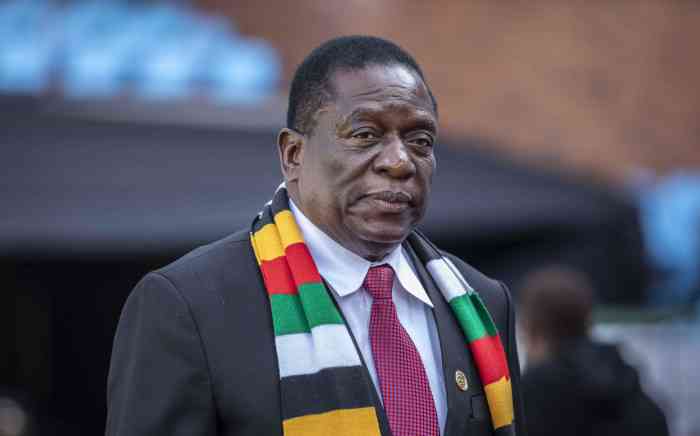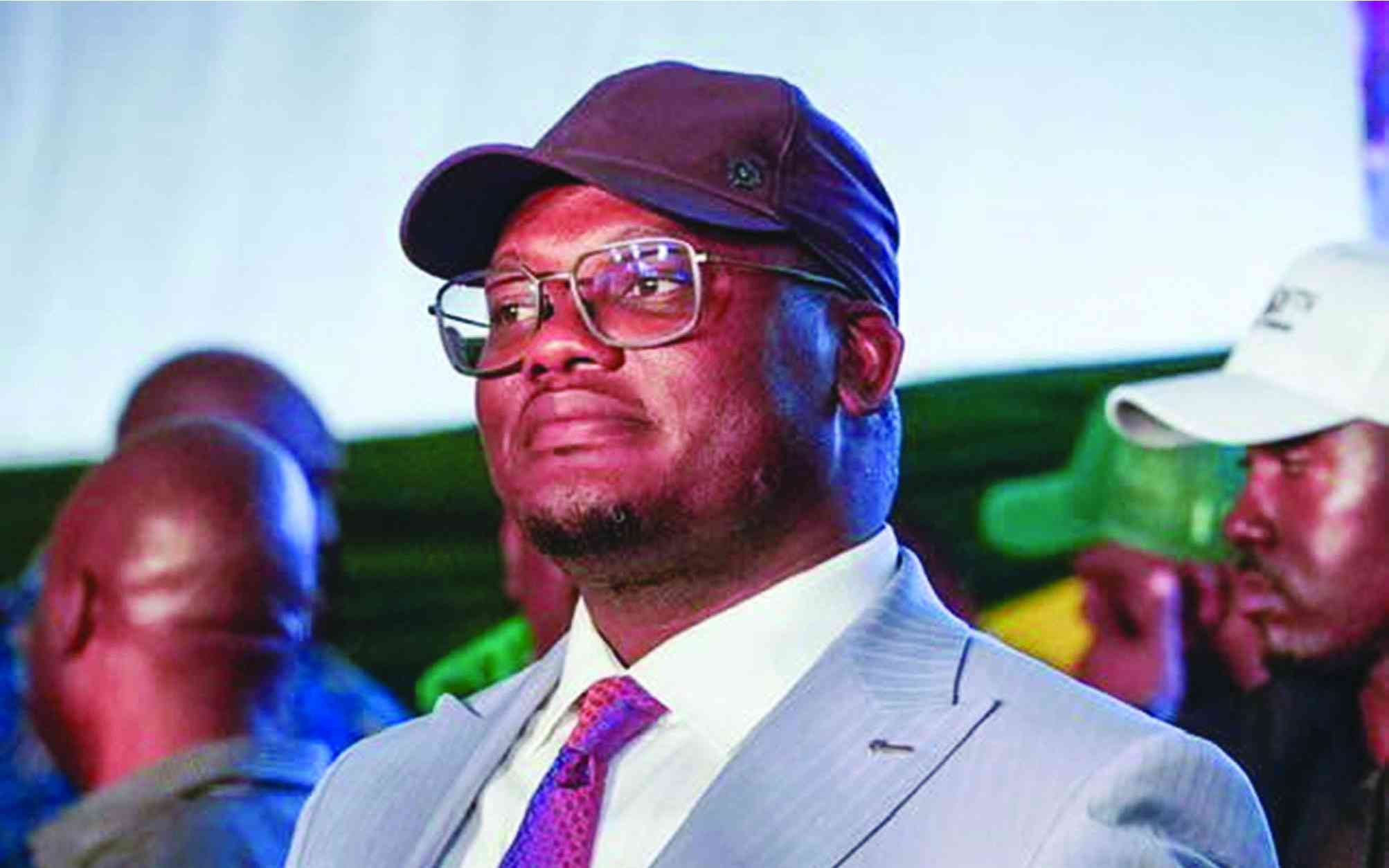
RATHER than an “interregnum”, Zimbabwe is witnessing the deepening of authoritarian politics that is likely to mark the country’s political character for the foreseeable future.
The combination of a new chapter in a long history of gold and other mineral exploitation and plunder, and a suffocating closure of democratic spaces by the latest constellation of elite brigands, provides a dire setting for the 2023 elections.
On November 15, 2017, Major-General Sibusiso Moyo stated that the military was stepping into the Zimbabwean political fray to “pacify a degenerating political, social and economic situation”.
The intervention by the military was named Operation Restore Legacy, but in reality, it was a coup in favour of the Emmerson Mnangagwa faction against their G40 opponents in Zanu PF.
However, the irony of the “Restore Legacy” narrative extolling the bravery of the liberation movement fighters against those in the ruling party “bent on hijacking the revolution” is that the legacies restored included the repressive politics and modes of rule of both the settler/colonial period and the liberation movements.
Thus, beyond the panegyric statements of the coup leaders, for much of the Zimbabwean citizenry, the reality of post-colonial liberation politics has been marked by the steady closing down of democratic spaces and the overwhelming precarity of livelihood strategies in a largely informalised economy.
This condition is not peculiar to Zimbabwe. Many post-liberation polities in southern Africa and on the continent are facing similar constraints.
The selective narratives of the liberation movements
- NoViolet Bulawayo’s new novel is an instant Zimbabwean classic
- Jah Prayzah, Zanu PF rekindles ‘lost love’
- Bank workers appeal to Ncube for tax relief
- Indosakusa marks 21-year anniversary milestone
Keep Reading
The formal demands of the nationalist movements were built around a few central issues, including democratisation and the end of racial discrimination, land redistribution and the dignity of human rights.
These demands, incorporated into an invented longer-term nationalist construction, became part of a selective process of inclusion and exclusion of voices and social forces that historian Terence Ranger termed “patriotic history”.
This narrative, repeatedly extolled by nationalist leaders, particularly in Zanu PF, deliberately marginalised the contributions of other parties to the liberation, such as Zapu, and the contributions of other anti-colonial movements such as trade unions and urban-based organisations, including residents’ and women’s organisations.
This construction of the vital role of the liberation movement fighters as central to anti-colonial politics contributed, in the long term, to the sense of entitlement of the post-colonial elite and its claim to have an indefinite hold on the levers of power.
Moreover, the long history of intra and inter-party violence, factional ethnic struggles, gender violence and the overall intolerance of political dissent throughout the war of liberation, meant that the legitimate anti-colonial demands of the liberation movement were also scarred by the repressive politics of single-party dominance.
Post-colonial regression
While the policy of reconciliation with the colonial legacies marked the first decade of Zimbabwe’s independence, the ruling Zanu PF party showed little tolerance towards any internal political opposition.
From the Gukurahundi massacres in Matabeleland and the Midlands and the throttling of the opposing liberation party Zapu, to the persistent utilisation of non-credible elections to legitimise a deepening authoritarian political culture, Zanu PF made it very clear from the inception of its rule that it would not even consider the possibility of giving up power through free and fair elections.
This framing of the ruling party’s political trajectory is well summarised by Sabelo Ndlovu-Gatsheni in his monograph Elections in Zimbabwe: A Recipe for Tension or a Remedy for Reconciliation, where he writes: “The political philosophy of the annihilation of enemies has underpinned Zanu PF’s attitude to State power not only during the liberation struggle and the 1980 election; it has been consistently deployed at every subsequent election as a means of dealing with political opposition. The party’s historical and political background is, therefore, very useful in understanding Zimbabwe’s election history and helps to explain why violence has been a consistent feature of the country’s elections from 1980 to the present day.”
To complement Zanu PF’s history of electoral violence, the ruling party has recently intensified the strategic closure of the public sphere for civil society interventions.
Two legislative interventions have sent a very clear message to critical voices in the civic space:
The Private Voluntary Organisations Amendment Bill (PVOs Bill): The controversial amendments to the PVOs Act threaten the right to freedom of association by controlling civil society organisations’ governance and programme activities. These include management choices and funding decisions. The United Nations (UN) special rapporteur on the rights of freedom of peaceful assembly and of association, Clément Nyaletsossi Voule, has expressed grave concern that “the overall impact of the amendment would likely be detrimental to civic space in Zimbabwe” and he and other UN experts have urged Mnangagwa to reject the Bill.
The Criminal Law Code Amendment Bill (the “Patriot Bill”): Parliament adopted a motion to enact the Patriot Bill which bans Zimbabwean nationals from speaking to foreign groupings within and outside government structures.
Although framed as a call to criminalise individuals and institutions that call for sanctions, the Bill seeks to restrict Zimbabweans within and outside the country from “speaking negatively” about the country.
While the PVOs Act is yet to be signed by the President, and the Patriot Bill still awaits further legislative procedure, their looming presence has already induced fear and hesitation among civil society organisations (CSOs).
However, these repressive interventions should also be viewed as evidence of the effectiveness of the work of civil society in monitoring and exposing the degenerative politics of Zanu PF.
The irony here is that both the political opposition and CSOs have taken charge of one of the key legacies of the anti-colonial narrative, namely the struggle for democratisation and human rights.
These groupings have expanded the meaning of the “Restore Legacy” proclamations of the coup leaders and reminded the citizenry of a central unfinished agenda of the liberation struggle.
It should also be noted that the opposition political parties have also shown signs of failure in their democratic agenda.
Since its inception in the late 1990s, the opposition Movement for Democratic Change — in its various iterations — has had to confront the deepening militarisation of State politics.
However, in addition to the immense repressive obstacles it has faced, the opposition has also committed its own political blunders.
Through a series of factional splits, questionable succession procedures, ethnic politics, intra-party violence, gender-based violence, unaccountable structures and the growing acrimony towards dissenting voices, the opposition’s shortcomings in providing an alternative democratic political imaginary have raised serious questions about its own political future.
Pillaging of public resources
Even as the political terrain has become a minefield of authoritarian nationalist politics, the party of liberation that claimed it would leave no citizen behind has done the opposite in the economic sphere.
The Al Jazeera investigation into gold trafficking and resource theft involving billions of dollars has once again exposed the use of post-colonial states as the centre of accumulation by political elites.
The involvement of ruling party officials, from top to bottom, points to the long and deep levels of State corruption and abuse and underlies the central reason Zanu PF will continue to tighten its grip on state power by whatever means necessary.
This exposure followed the report by Daily Maverick detailing the cartelisation of Zimbabwe’s resource base through three forms:
Even as the fast-track land resettlement programme provided differentiated levels of land allocation, an excellent article by Zimbabwean scholar Phillan Zamchiya strongly argues that this differentiation largely took the form of “accumulation from above” by patronage clients of Zanu PF, through the State-led farm mechanisation scheme of 2007-08.
Zamchiya argues that these clients included “grassroots and senior party members or those linked to it, Cabinet ministers, judges, members of the security sector, civil servants, national election administrators and traditional leaders who in turn sustain Zanu PF’s political hegemony in an unstable political agrarian landscape”.
This politics of patronage on the land can also be extended to the artisanal and small-scale mining where Melusi Nkomo and Lotti Nkomo argue that the ruling party’s grip on power and territory, though contested, is negotiated through a “flexible network of bargains and negotiated fusions, exchanges and appropriations”.
Thus, a combination of Zanu PF’s militarised forms of rule, and its domination of key sectors of economic extraction through patronage and corruption, has characterised the defining features of the ruling party’s construction of the “Restore Legacy” exaltations.
What lies ahead?
Analysts sometimes refer to the crisis period in Zimbabwe by invoking the Gramscian concept of the interregnum, the conjunctural political period in which “the old is dying and the new cannot be born”, resulting instead in the appearance of “a variety of morbid symptoms”.
In my view, rather than an interregnum, Zimbabwe is witnessing the deepening of authoritarian politics that is likely to mark the country’s political character for the foreseeable future.
The combination of a new chapter in a long history of gold and other mineral exploitation and plunder, and a suffocating closure of democratic spaces by the latest constellation of elite brigands, provides a dire setting for the 2023 elections.
Given the current contestations in global politics, with China challenging the US-dominated global order and Russia in search of a stronger Eurasian sphere of influence, the growing demands for the wealth of minerals available in Zimbabwe — gold, platinum, lithium — is likely to provide more political leverage for authoritarian regimes such as Zimbabwe’s ruling party.
Furthermore, the narratives of anti-imperialism and Pan-Africanism, which have been severely hollowed out by the rule of Zanu-PF, will continue to provide the legitimation for regional and continental solidarity in the context of the remaining sanctions measures against the Mnangagwa regime.
For much of the Zimbabwean citizenry, the politics of “Restore Legacy” unfortunately echoes a longer history of political repression.
- Brian Raftopoulos is an adjunct professor at the Nelson Mandela School of Public Governance at the University of Cape Town in South Africa. This article is part of a series showcasing the research and the thematic work areas of the Nelson Mandela School.







